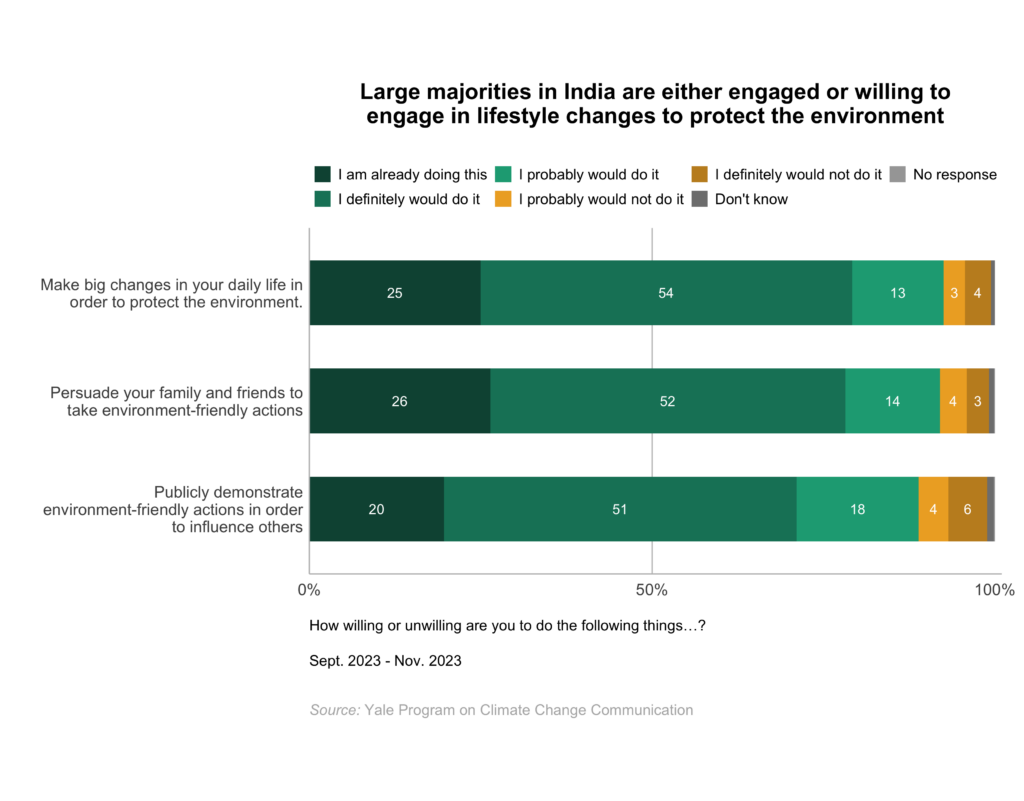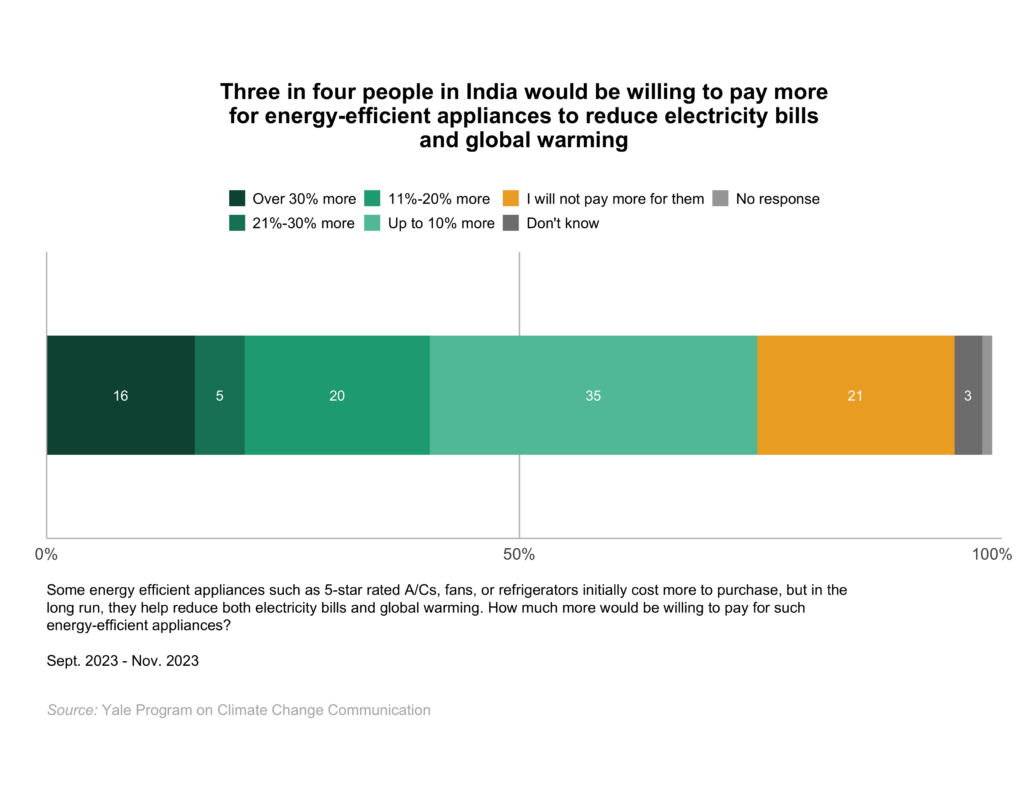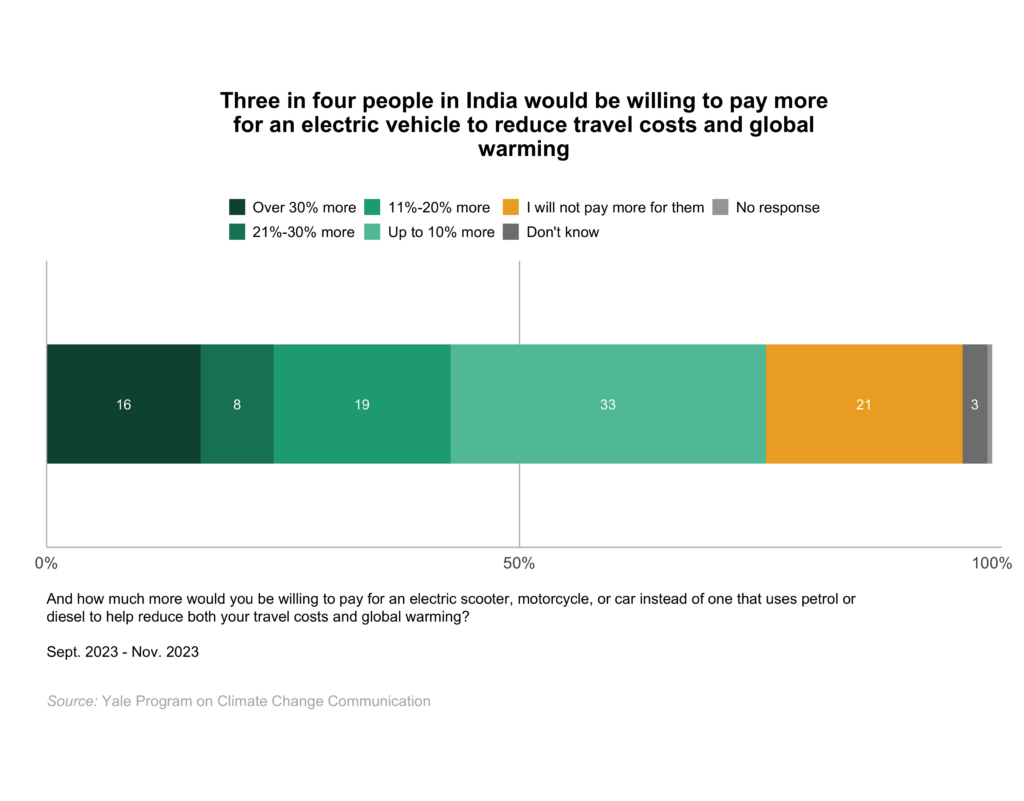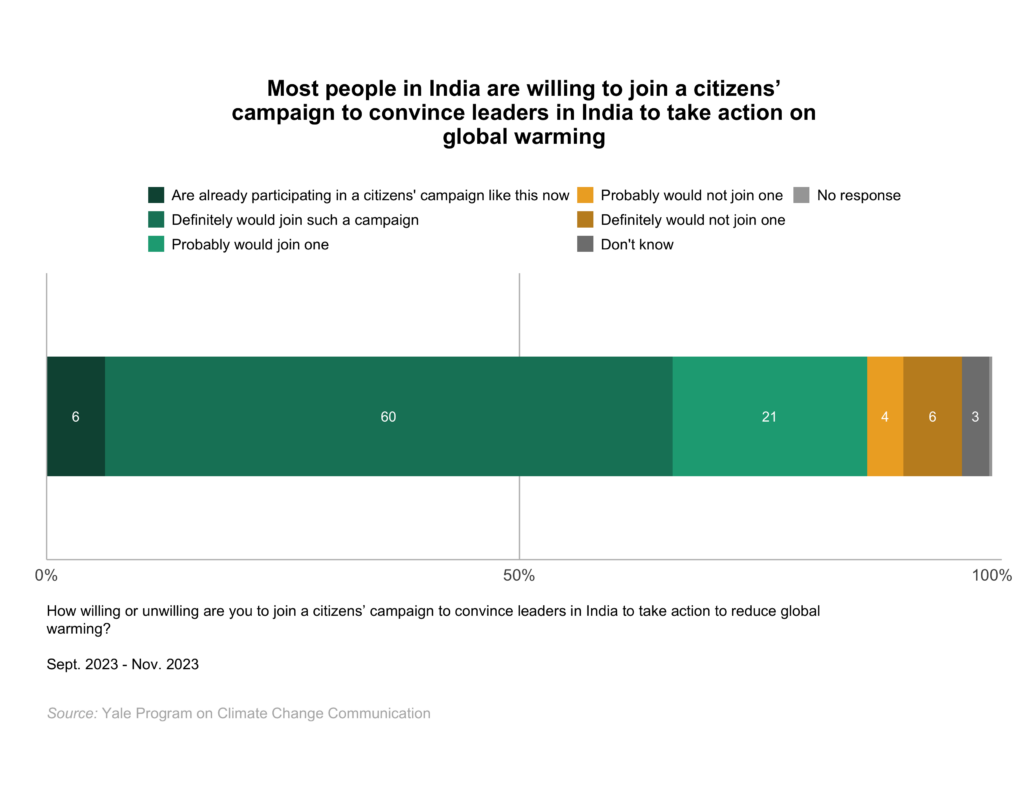Report · May 16, 2024
Climate Change in the Indian Mind, 2023
By Anthony Leiserowitz, Jagadish Thaker, Marija Verner, Emily Goddard, Jennifer Carman, Seth Rosenthal, Naga Raghuveer Modala, Mallika Talwar, Yashwant Deshmukh, Gaura Shukla, Jennifer Marlon, Matthew Ballew and Matthew Goldberg
Filed under: Behaviors & Actions and Beliefs & Attitudes
6. Willingness to Take Action to Reduce Global Warming
6.1. Large majorities in India are either engaged or willing to engage in lifestyle changes to protect the environment.
At COP26, Prime Minister Narendra Modi called for a global mass movement for behavior change, Lifestyle for the Environment (LiFE), and asked people to take the following three pledges: to make big changes in their daily life in order to protect the environment, to persuade their family and friends to take environment-friendly actions, and to publicly demonstrate environment-friendly actions in order to influence others.
Asked how willing or unwilling they are to make big changes in their daily life in order to protect the environment, a large majority of people in India (93%) say they are either “already doing this” (25%) or are “definitely” (54%) or “probably” (13%) willing to do it. In contrast, few people in India (7%) say they either “probably” (3%) or “definitely” (4%) would not do it.
Asked how willing or unwilling they are to persuade their family and friends to take environment-friendly actions, a large majority of people in India (92%) say they are either “already doing this” (26%) or are “definitely” (52%) or “probably” (14%) willing to do it. In contrast, few people in India (7%) say they either “probably” (4%) or “definitely” (3%) would not do it.
Asked how willing or unwilling they are to publicly demonstrate environment-friendly actions in order to influence others, a large majority of people in India (89%) say they are either “already doing this” (20%) or are “definitely” (51%) or “probably” (18%) willing to do it. In contrast, few people in India (10%) say they either “probably” (4%) or “definitely” (6%) would not do it.
6.2 Three in four people in India would be willing to pay more for energy-efficient appliances to reduce electricity bills and global warming.
Respondents were presented the following statement: “Some energy efficient appliances such as 5-star rated A/Cs, fans, or refrigerators initially cost more to purchase, but in the long run, they help reduce both electricity bills and global warming.” Then, they were asked how much more they would be willing to pay for such energy-efficient appliances. Three in four people in India (75%) say they would be willing to pay more for energy-efficient appliances. This includes 16% of people who say they would be willing to pay over 30 percent more, 5% willing to pay 21–30 percent more, 20% willing to pay 11–20 percent more, and 35% willing to pay up to 10 percent more. By comparison, one in five (21%) say they are not willing to pay more for energy-efficient appliances.
6.3 Three in four people in India would be willing to pay more for an electric vehicle to reduce travel costs and global warming.
Respondents were asked how much more they would be willing to pay for an electric scooter, motorcycle, or car instead of one that uses petrol or diesel to help reduce both their travel costs and global warming. Three in four people in India (76%) say they would be willing to pay more for an electric vehicle. This includes 16% of people who say they would be willing to pay over 30 percent more, 8% willing to pay 21–30 percent more, 19% willing to pay 11–20 percent more, and 33% willing to pay up to 10 percent more. By comparison, one in five (21%) say they are not willing to pay more for an electric vehicle.
6.4 Most people in India are willing to join a citizens’ campaign to convince leaders in India to take action on global warming.
A large majority of people in India (87%) say they are either “already participating in” (6%) or are “definitely” (60%) or “probably” (21%) willing to join a citizens’ campaign to convince elected officials to take action to reduce global warming. In contrast, few people in India (10%) say they either “probably” (4%) or “definitely” (6%) would not join such a campaign.



